At approximately midnight on 31st of August 2019, a group of seven people from Morocco left Velika Kladuša to cross the border with Croatia. After eight days walking in the mountainous forest of Croatia, they group finally reach the Slovenian border.
On 8th September, at approximately 23:00, as they walked along a road, two officers, a policeman and a policewoman, arrived in a police car and summoned them, ordering them to stop. The respondent describes how the group were scared, but approached because they wanted to ask for asylum. The transit group obeyed the officers, who promptly made calls to their colleagues on the phone. A police van arrived and took the group to a police station in Metlika (Slovenia), where other police officers took their pictures, their fingerprints, wrote down their names, country of origin/destination and kept them in detention overnight.
A paper written in Slovenian was issued to the group members, but the men did not understand what it said. Another respondent, part of the same group, reacted to this issueing of documents, stating:
“No understand. Police, this, me sign but no understand.“
Without any translator present, the police forced the group to sign a paper (to which none of the men were made aware of the contents).
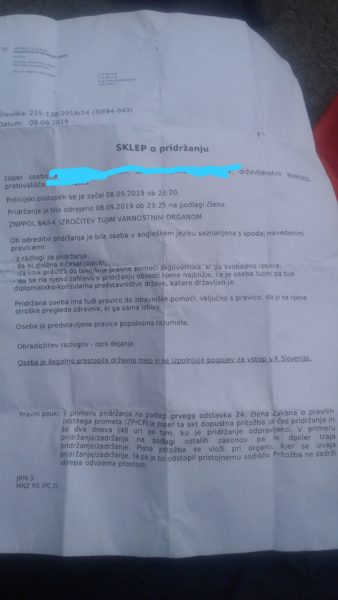
Describing the procedure of this identification process, fingerprinting and issuing of removal form, the respondent shared that:
“They talk a bit English but if you understand, okay. If not, they do whatever they want“.
The respondent stated that, the day after (9th September 2019), the Slovenian officers removed the group from the station and drove them to the border with Croatia. A van, with a description matching that of Croatian police vehicles, took the seven people from the border, and drove them into Croatian territory. The respondent described how exasperated he was to be returned by Slovenian officials to Croatia. He stated that he used to live and work in Italy before and, expressing himself in fluent Italian, shared the despair that:
“I thought they would take us to a camp. But no. They took us to the Croatian border. There were two officers to drive [the van] and four in another car. They took us to a police station“.
Referring to the Croatian officials above, the respondent was take to a police station along with the other group members. Once there, some Croatian officers took their picture, wrote down their names and put them in detention. When asked if they had access to toilets, the respondent answered:
“Toilets? This is not a room in a hotel. No toilets. Nothing to eat, nothing to drink, no toilets. We were seating here and toilets there [pointing a space on the ground one meter ahead]. In same room, on the floor“.
During the evening (of 9th September 2019), having been detained for what the respondent suggests was approximately four-five hours, the transit group were taken en mass to a place at the border between Croatia and Bosnia. The group estimated that they had arrived to this location at 22:00.
The respondent shares how, upon arrival at the border, the police removed them from the vans and lined the people up in order to confiscate all their belongings.
“They make us go out of the van, in line. There are two officers on each side. They are dressed in black with [ski masks] on their face. They take our personal belongings. They take our phones and they break all. After they give us the plastic bag with the broken phones.”
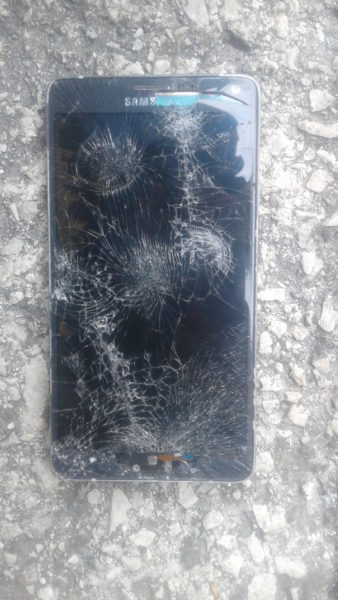
After the group had been lined up, the police broke their mobile phones, as pictured above. According to the respondent, making any movement or complaint in the presence of these officers would lead them to beating people.
“If you make a gesture or a step on the side, they beat you.
Once the group had been searched, the officers shouted at them to move towards BiH territory. But concealed in the woodland were more Croatian officers, ready to assualt the group.
“They say ‘go go go’ and you have to run. We run straight and there, there are four other [officers] hidden behind a tree and they come out with batons and beat us, all together. One had [come by] motorbike“.
The group were ambushed by four officers concealed behind a tree. Emerging from cover, they attacked the men, beating them with batons.
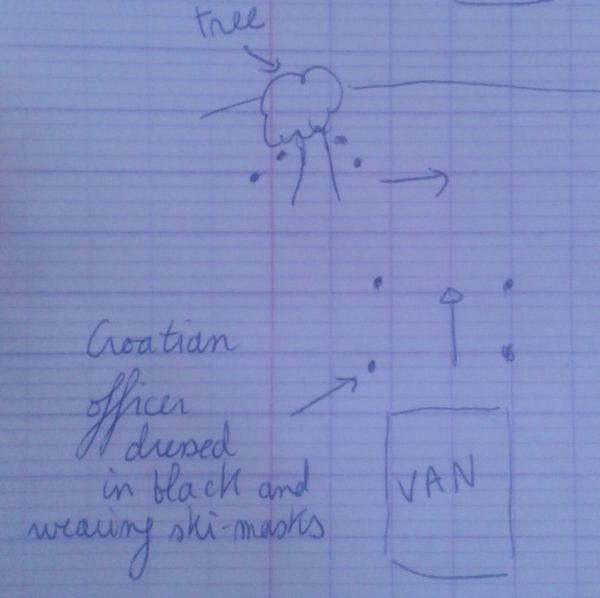
Figure 3 depicts the actions that unfolded. The attack resulted in the respondent being beaten to the ground by one of the Croatian officers. He stated:
“I was on the ground and one [officer] beat me very strongly with a baton on my back when I was lying down.“
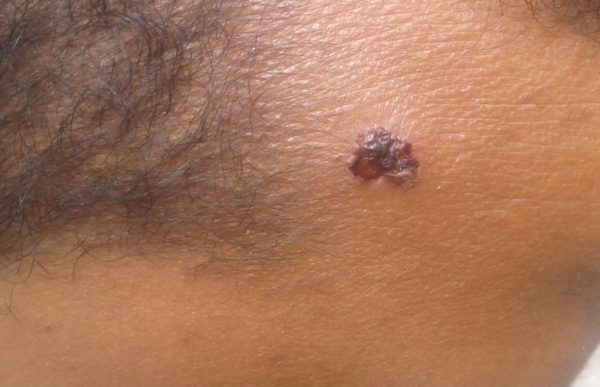
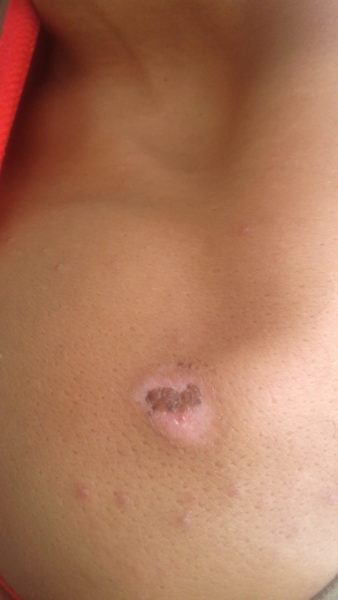
After being beaten, one of the officers ordered them to walk in the direction of Bosnia. The men began walking in the direction given. It was a sloped route, surrounded by trees. The respondent described how one of the officers who had ambushed them from the tree used a gun to frighten the group.
“We had to go down the mountain, after the tree. One of the four officers behind the tree had a gun. You know a gun that only makes noise, to frighten you. He shot four times. One in the air, up, and three times on us.“
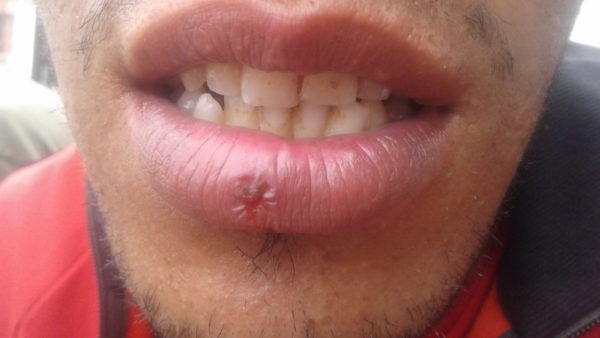
The group didn’t know where they had been pushed back as they had no phones (and thus no GPS), and they were also in a state of shock which hightened their disorientation. They asked for directions in the first village they came to and were told the direction of Velika Kladuša. According to the person who helped them, it was around 30 km away.
Confirmation from several group members suggests the border violence occurred at Kobiljak (HR). One of the respondents within the group remembered clearly the separation of the two roads, one going to Croatia, one to Bosnia, and other details of the surroundings that made him able to show the exact place of the push back on the map. The description corresponds to the location indicated.
